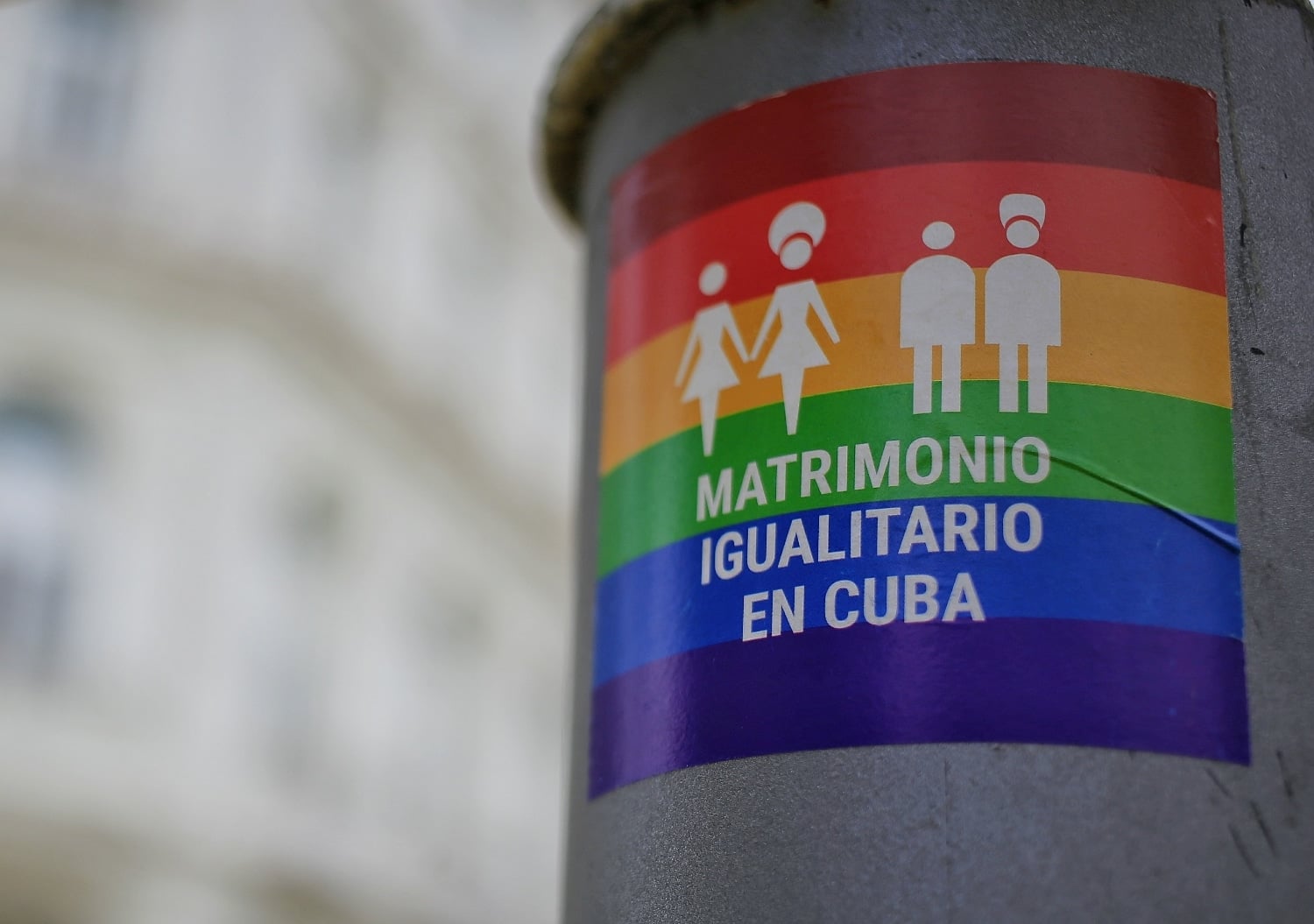
Post banner about the new Cuban Family Code. Photo: Bloomberg.

Orinoco Tribune – News and opinion pieces about Venezuela and beyond
From Venezuela and made by Venezuelan Chavistas

Post banner about the new Cuban Family Code. Photo: Bloomberg.
Caracas, September 26, 2022 (OrinocoTribune.com)—Cubans said “yes” to the new Family Code during the referendum held last Sunday, guaranteeing equal marriage and adoption rights for same-sex couples in the island’s legislation, among other relevant advances on civil and family rights.
The National Electoral Council of Cuba confirmed on Monday morning, September 26, that the new Family Code was approved with 3,936,790 votes, representing 66.87% of the total 5,892,705 ballots counted. Meanwhile, the “No” received 1,950,090 votes, representing 33.13% of the valid votes.
The president of Cuba’s National Electoral Council, Alina Balseiro Gutiérrez, explained that 6,251,786 voters participated in the vote, representing 74.01% of the electoral roll. Although these results are not definitive, since some provinces have yet to be counted, Balseiro indicated that they are valid and the result is irreversible.
La presidenta del Consejo Electoral Nacional @Alina_Balseiro da a conocer los resultados preliminares de la votación por el #Referendo del #CódigoDeLasFamilias en Cuba y en el exterior. pic.twitter.com/FcPrBychfW
— Elecciones en Cuba (@Elecciones_Cuba) September 26, 2022
What does the new Family Code include?
The new Family Code will replace the law in force since 1975, which contains 471 articles and regulates the rights and duties in interpersonal relationships within the family nucleus. Among the new regulations are same-sex marriage and adoption rights for LGBTQ+ couples.
Additionally, in the new code, the concept of family includes matters such as sentimental motherhood or fatherhood, allowing an infant to have more than one father and one mother.
It also eliminates labels such as stepmother and stepfather and enables surrogacy, or “solidarity” gestation, so that a woman can lend herself to gestate the baby of another person or couple who will assume parental responsibility.
Estallan los aplausos en medio de la reunión de chequeo que hace #AHORA el presidente @DiazCanelB sobre la situación en #Cuba con el #HuracáIan #CódigoSí pic.twitter.com/3AMgQFcYTX
— Presidencia Cuba 🇨🇺 (@PresidenciaCuba) September 26, 2022
The results of the referendum were celebrated by Cuban President Miguel Díaz-Canel, who, like other officials, applauded in the room where they were waiting to hear the referendum results.
Meanwhile in Venezuela
For his part, Venezuelan President Nicolás Maduro celebrated the results of the referendum in Cuba, posting a message on his Twitter account, despite Venezuela being one of the most conservative countries in Latin America when faced with LGBTQ+ and abortion issues.
President Maduro wrote: “I congratulate the Cuban people, for the extraordinary participation in the popular referendum on the Family Code, approved with more than 60% of the popular vote. A historic day, which continues to deepen the revolutionary struggle for the protection of families. Great Cuba!”
Felicito al pueblo cubano, por la extraordinaria participación en el Referendo Popular del #CódigoDeLasFamilias, aprobada con más del 60 % del voto popular. Una jornada histórica, que continúa profundizando la lucha revolucionaria por la protección de las familias. ¡Grande Cuba! pic.twitter.com/hvqfdZko1Q
— Nicolás Maduro (@NicolasMaduro) September 26, 2022
Venezuela is one of the Latin American countries with the most progressive legislation and policies on several issues, such as labor, housing, land, and healthcare, among others. Yet, Venezuela lacks leadership in LGBTQ+ rights, such as the right of LGBTQ+ couples to adopt children and form a family, the right to formalize civil unions or marriages and to recognize their own sexual identity.
The discussion of abortion in Venezuela is also among the most conservative and outdated in the region, with feminist organizations pushing for years for more advanced legislation but clashing with the reality of social conservatism promoted and fiercely defended by religious interest groups at all levels, mainly Catholics and Protestants.
Ruta Verde, a Venezuelan platform pushing for abortion rights and LGBTQ+ issues, has been in talks with the Venezuelan National Assembly for the last several months to discuss the Law on Sexual and Reproductive Rights. However, the lack of a decision from the United Socialist Party of Venezuela (PSUV) controlled body has forced Ruta Verde to move in another direction, the people’s legislative initiative, which may allow them to legally submit and request the discussion of the law by the Chavista parliament. Machismo and social conservatism are prevalent in the parliament, despite being incompatible with the principles of socialism, the defense of human rights and equality.
Ruta Verde, with members from all sides of the complex Venezuelan political spectrum, has been active the whole month of September, working to collect 21 thousand signatures that will give them more legitimacy and a constitutional base to move forward in the discussion and ulterior approval of the necessary law.
Laura Cano, a member of the NGO Tinta Violeta, part of Ruta Verde, said to EFE that “the law basically proposes everything that has to do with our slogan of sexual education to decide, contraceptives not to abort, and legal abortion not to die.” The proposal contemplates the elimination of articles 430 (procured abortion), 431 (consensual abortion), 433 (aggravated abortion) and 434 (honour abortion) of Venezuela’s Criminal Code, in which prison sentences between two and up to 30 years are defined.
Cano added, “Venezuela is one of the countries in the region with the most restrictions. It only exists in our legal framework … that women can abort in life-threatening situations; however, there are no medical protocols.”
Special for Orinoco Tribune by staff
OT/JRE/SF